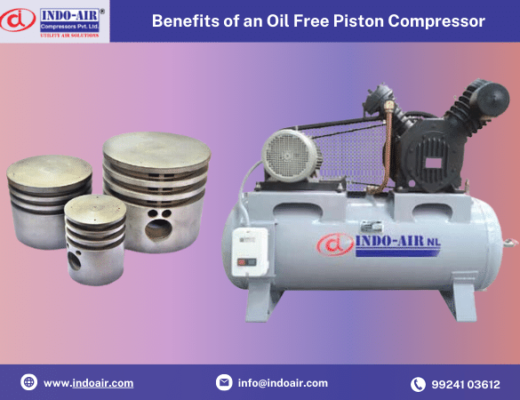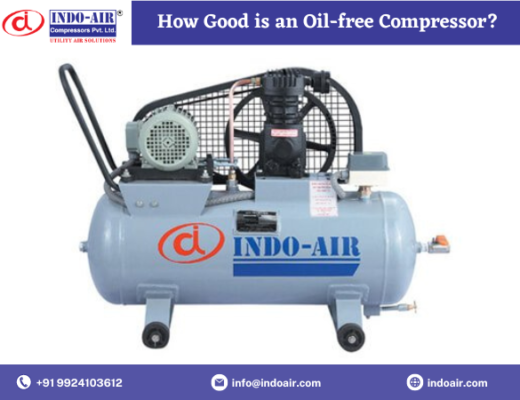Maintaining the highest levels of air purity is a crucial factor in several manufacturing situations. Any residues of oil in the air can cause expensive production downtime, product deterioration, and reputational harm in industries ranging from semiconductor and electronics manufacturing to medical and food and beverage. oil free air compressor India, also known as oil less air compressors, are now often used in industrial settings such as factories and workshops. These compressors are utilised when a certain level of air quality is required or when the possibility of oil contamination from an oil-lubricated air compressor can be problematic.
How do oil-free air compressors work?
Oil-free air compressors either employ other materials to lubricate the mechanism or do not have any mechanical contact inside the compression chamber. The majority of oil-free compressors use alternative substances, such as water or a Teflon coating, to keep the mechanism in good working order. Proper sealing keeps any oil from polluting the compressed air since all of the bearing and gear lubrication takes place outside of the compression chamber. A completely oil-free air supply is the end result. Some oil-free designs also avoided metal-to-metal contact inside the compression chamber, which rendered synthetic and oil-based lubrication unnecessary.
By forcing air into a container, air compressors pressurise it. As pressure builds, the air is then forced through a tank opening. Think of it as an open balloon where the compressed air may be let out and utilised to generate electricity. They are propelled by an engine that transforms electrical energy into kinetic energy. Similar to a combustion engine, it uses a crankshaft, piston, valve, head, and connecting rod. The compressed air may then be used to power a variety of tools from there. The most popular substitutes include nailers, sanders, impact wrenches, and paint sprayers.
Advantages of Oil-free air
Reduces the Risk of Contamination
Whenever the compressed air comes in contact with the end product, there is always a risk of contamination. This is why oil-free air compressor manufacturers always recommend never introducing oil into your airstream.
Reduces Environmental Impact
Unlike oil-flooded screw compressors which require a large amount of oil-change every six to twelve months, oil-free compressors do not require any oil changes for around 3-4 years as the oil-change does not come under the compression process.
Reduces Maintenance Costs
Oil-flooded compressors, as discussed above, require oil changes every six to twelve months which is itself a costly business as it not only adds to the operational cost but requires manpower too. Oil-flooded compressors require expensive oil filters too to clean the compressed air which is totally eliminated in case of oil-free compressors.
Reduces Energy Costs
The overall cost savings from energy can alone be a huge amount as energy costs are usually 60-70% of the total life cycle of an air compressor.
How to choose the best oil free air compressor
You need to understand your application and air demand in order to choose the best oil-free air compressor for your requirements. Oil-free air compressors can help you cut energy expenses and increase production by helping you choose the proper size and type. It might be challenging to use oil-powered air compressors in clean manufacturing facilities. Most air compressor manufacturers in India make air compressors that have oil-lubricated internal mechanics, and the fumes they emit may impair products or manufacturing techniques by polluting the air. Using an oil-free air compressor considerably reduces this danger. If you’re working on a lengthy building project, it can be smart to spend extra money up front on a high-efficiency air compressor.



